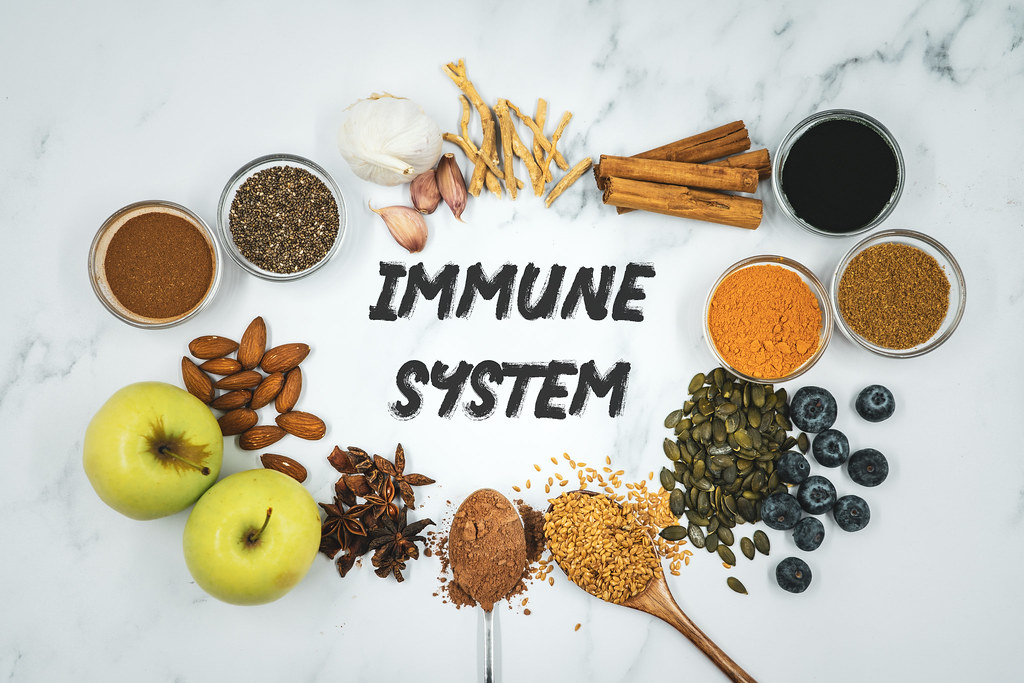Nutrition is integral to maintaining overall health, particularly supporting the body’s immune defenses. Unlike macronutrients, which provide energy, micronutrients refer to vitamins and minerals required in smaller amounts that contribute to a wide range of physiological functions. Here is more information on how specific micronutrients support immune processes:
Connecting Micronutrients and Immune Function
Nutrition is directly linked to the regulation and efficacy of the immune system. They support the development and activation of immune cells and help protect the body from oxidative stress, which can weaken immunity. Vitamins such as C and E act as antioxidants that counteract free radicals, while trace minerals such as zinc are involved in cellular repair and white blood cell production. Micronutrients also contribute to maintaining mucosal barriers, which serve as the body’s first line of defense against pathogens.
Key nutrients like selenium and iron are less discussed but are equally instrumental. Selenium assists with antioxidant enzyme production, which reduces inflammation, while iron helps transport oxygen to tissues. These elements work cohesively to strengthen the immune system’s overall efficiency.
Understanding Key Micronutrients
Maintaining immune-supportive levels of micronutrients often begins with diet. Various whole foods are naturally rich in the vitamins and minerals necessary for immunity. Here are a few examples of significant contributors:
- Vitamin C is abundant in citrus fruits, strawberries, bell peppers, and broccoli. It aids in the production of immune cells that target harmful pathogens and supports cellular repair.
- Zinc can be sourced through nuts, seeds, lean meats, and shellfish. It assists with the production and functioning of T-cells, a component of the immune system.
- Vitamin D, frequently derived from fortified foods, fatty fish, and egg yolks, modulates the immune system by influencing inflammation-related responses.
- Iron, present in red meats, spinach, and legumes, supports the proliferation of immune cells and hemoglobin’s oxygen-transporting function.
Procuring these micronutrients from food sources allows for better absorption by the body, compared to synthetic supplements. Individual dietary needs may vary, and consulting a healthcare professional may be beneficial when dietary restrictions or medical conditions are present.
Exploring Effects on Immunity
Emerging research highlights how micronutrient deficiencies may impact long-term immune health or leave the body more susceptible to infections. Zinc deficiency is associated with delayed wound healing and a weakened ability to fend off bacterial or viral infections. Low vitamin D levels correlate with increased susceptibility to respiratory tract infections.
Maintaining optimal levels of these nutrients can promote better immune outcomes over time. Antioxidant-rich micronutrients such as selenium and vitamin E neutralize oxidative stress, which helps reduce systemic inflammation that compromises immune responses. These micronutrients help repair DNA and maintain cellular integrity, fostering a robust immune defense.
Get Nutrition Counseling
Micronutrients are indispensable for the effective functioning of the immune system. These vitamins and minerals contribute significantly to immune health through their roles in supporting cellular activity, reducing oxidative stress, and maintaining physical barriers against pathogens. A balanced diet featuring foods rich in vitamin C, zinc, vitamin D, and other micronutrients remains key to achieving optimal immune function. Understanding the role of micronutrients in immunity provides a framework for integrating nutrient-dense foods into daily diets, promoting prevention and maintaining a resilient immune system.
- Zirconia Cap Price: Estimated Cost & Its Long-Term Benefits
- FREHF – The Revolutionary Future Of Human-Centered Technology!
- Adsy.Pw/Hb3 – Boost Your SEO And Drive More Traffic!
- Fitness Based Vacations By Timeshealthmage.com!
- TimesHealthMag Tips For Improving Sleep Quality – Expert Advice For Better Rest!


Leave a Reply